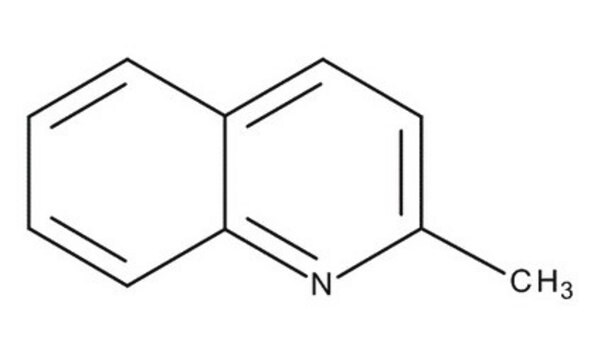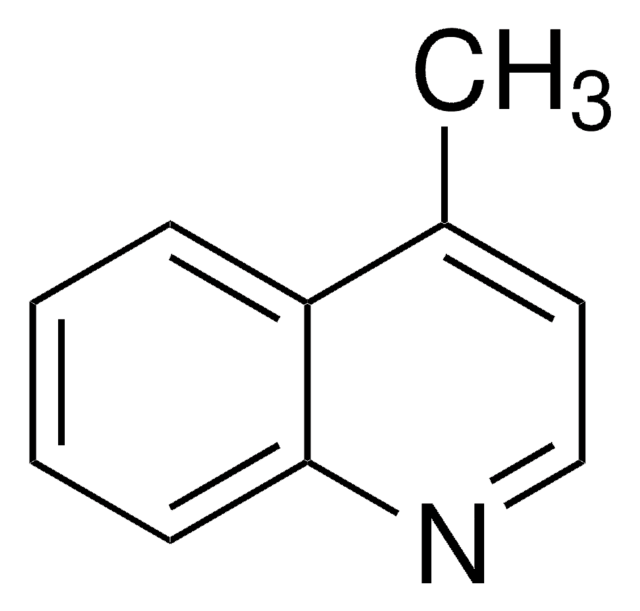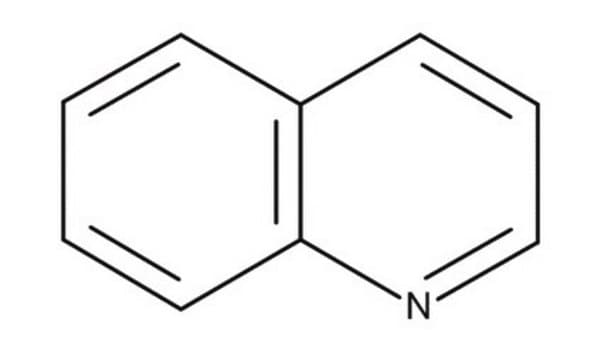22550
Quinaldine
≥95.0% (GC)
Sinónimos:
2-Methylquinoline
About This Item
Productos recomendados
assay
≥95.0% (GC)
form
liquid
refractive index
n20/D 1.612 (lit.)
bp
105-107 °C/10 mmHg (lit.)
248 °C (lit.)
mp
−9-−3 °C (lit.)
solubility
chloroform: soluble(lit.)
diethyl ether: soluble(lit.)
water: insoluble(lit.)
density
1.058 g/mL at 25 °C (lit.)
SMILES string
Cc1ccc2ccccc2n1
InChI
1S/C10H9N/c1-8-6-7-9-4-2-3-5-10(9)11-8/h2-7H,1H3
InChI key
SMUQFGGVLNAIOZ-UHFFFAOYSA-N
Gene Information
human ... CYP1A2(1544)
¿Está buscando productos similares? Visita Guía de comparación de productos
General description
Application
- In the preparation of squaraine dyes (quinaldine-based squaraine dyes) which is biologically significant and can be used as an metal ion sensor.
- To prepare the pH sensitive colorimetric chemo sensors.
Features and Benefits
Caution
signalword
Warning
Hazard Classifications
Acute Tox. 4 Dermal - Acute Tox. 4 Oral - Aquatic Chronic 3 - Eye Irrit. 2 - Muta. 2 - Skin Irrit. 2
Storage Class
10 - Combustible liquids
wgk_germany
WGK 3
flash_point_f
174.2 °F - closed cup
flash_point_c
79 °C - closed cup
ppe
Eyeshields, Faceshields, Gloves, type ABEK (EN14387) respirator filter
Elija entre una de las versiones más recientes:
¿Ya tiene este producto?
Encuentre la documentación para los productos que ha comprado recientemente en la Biblioteca de documentos.
Los clientes también vieron
Nuestro equipo de científicos tiene experiencia en todas las áreas de investigación: Ciencias de la vida, Ciencia de los materiales, Síntesis química, Cromatografía, Analítica y muchas otras.
Póngase en contacto con el Servicio técnico













